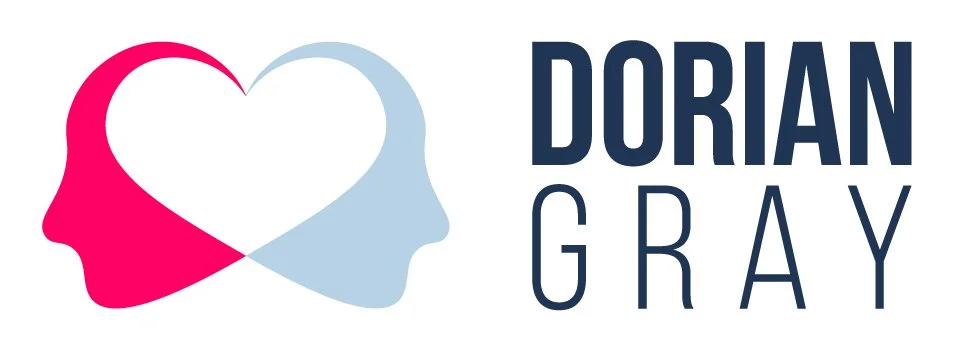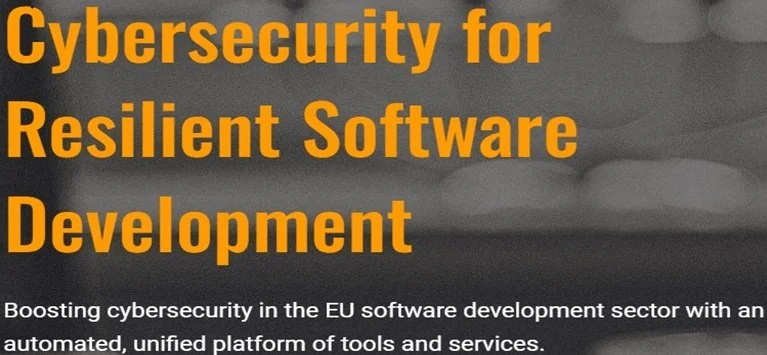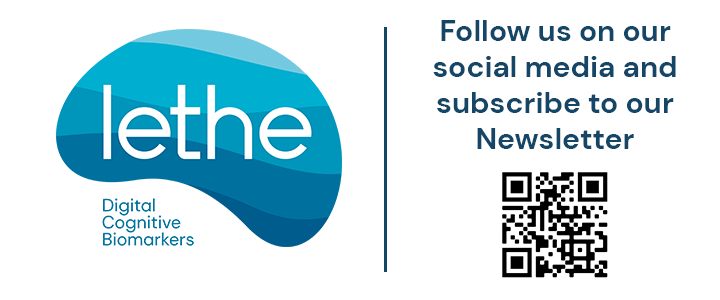European Projects
Dorian Gray
The DORIAN GRAY project, funded by the European Union's Horizon Europe Programme under Grant Agreement No. 101156266, aims to develop personalized risk stratification and holistic management strategies for preventing cognitive impairment in patients with cardiovascular conditions. The project integrates AI-driven digital solutions and clinical research to improve patient outcomes and healthcare efficiency.
Objectives
Cognitive Health Enhancement: Develop interventions to delay or prevent mild cognitive impairment (MCI) in cardiovascular patients.
Personalized Prevention: Utilize AI and digital twin models for tailored risk assessment and health management.
Digital Health Innovation: Implement avatar-based exergames and digital coaching to improve adherence to interventions.
Key Components
AI-Powered Risk Stratification: A predictive tool combining biomarkers, imaging, and real-world data.
Digital Twin Platform: A simulation-based system for personalized disease progression modeling.
Avatar-Based Exergaming: A gamified approach to encourage cognitive and physical engagement.
Clinical Studies & Data Collection: Real-world testing through randomized controlled trials (RCTs).
Target Users
Patients with Cardiovascular Conditions: Individuals at risk of cognitive decline due to heart failure or other cardiovascular diseases.
Healthcare Providers: Clinicians and researchers leveraging AI for risk prediction and personalized treatment.
Policy Makers & Public Health Officials: Experts focusing on preventive healthcare and digital health strategies.
Timeline and Budget
Duration: The project is active, with ongoing developments and clinical trials.
Funding: Supported by the Horizon Europe Programme under the HORIZON-HLTH-2024-STAYHLTH-01 call.
Expected Outcomes
Early Detection & Prevention: AI-powered insights for predicting MCI progression.
Improved Patient Adherence: Digital coaching and gamification for long-term engagement.
Healthcare Cost Reduction: Optimized interventions reducing the burden on healthcare systems.
Scalable Digital Health Solutions: Integrating AI-driven diagnostics and remote patient monitoring.
The DORIAN GRAY project seeks to revolutionize cognitive health management through AI, digital twins, and gamified interventions, paving the way for a more personalized and effective healthcare approach.
For more detailed information, please visit the DORIAN GRAY project page.
Console
The CONSOLE project, funded by the European Union’s Digital Europe Programme under Grant Agreement No. 101128070, aims to enhance cybersecurity within the European software development sector. The project focuses on creating a unified, automated platform that integrates cybersecurity tools and training services.
Objectives
Cybersecurity Enhancement: Strengthen the cybersecurity practices of software developers and end-users.
Cost Reduction: Reduce the acquisition costs of cybersecurity tools for EU SMEs.
User-Friendly Solutions: Provide straightforward, tailored cybersecurity solutions.
Key Components
Automated Platform: A sophisticated platform integrating cybersecurity modules.
Training Services: Comprehensive training to equip users with necessary cybersecurity skills.
Cost-Effective Tools: Affordable cybersecurity tools tailored for the software development lifecycle.
Target Users
Software Developers: Enhance security practices during the development process.
SMEs: Cost-effective cybersecurity solutions for small and medium-sized enterprises.
End-Users: Ensure robust security for software applications and systems.
Timeline and Budget
Duration: The project is active, with ongoing developments and updates.
Funding: Supported by the EU’s Digital Europe Programme.
Expected Outcomes
Improved Security: Enhanced cybersecurity for software applications and systems.
Reduced Costs: Lower costs for acquiring and maintaining cybersecurity tools.
Streamlined Processes: Simplified and unified security solutions for developers and organizations.
The CONSOLE project aims to significantly boost cybersecurity in the European software development sector through innovative, automated tools and comprehensive training services. This initiative supports the creation of secure, resilient software applications and systems.
For more detailed information, please visit the CONSOLE project page.
Germ of Life
The Germ of Life project is a groundbreaking initiative under the Interreg Euro-MED Programme, focusing on combating drought and its severe implications on the Mediterranean region. This project leverages innovative digital technologies to enhance drought risk management and bolster ecosystem resilience.
Objectives
Assessment of Drought Conditions: The project aims to accurately assess the severity and impact of drought across the Mediterranean basin.
Ecosystem Resilience: Enhancing the resilience of ecosystems to adapt to changing climatic conditions and mitigate the adverse effects of drought.
Transnational Cooperation: Fostering collaboration among Mediterranean countries to share knowledge, strategies, and technologies for effective drought management.
Participating Entities
The project involves ten entities from six Mediterranean countries, including research institutions, governmental bodies, and non-governmental organizations. These entities collaborate to develop and implement innovative solutions to manage and mitigate drought risks effectively.
Key Components
Digital Technologies: Utilization of cutting-edge digital tools and technologies for real-time monitoring and assessment of drought conditions.
Data Integration: Combining data from various sources to create comprehensive drought management models.
Capacity Building: Training and capacity-building initiatives for stakeholders to enhance their ability to manage drought conditions effectively.
Policy Development: Developing and promoting policies that support sustainable drought management practices.
Timeline and Budget
Duration: The project runs from January 2024 to September 2026.
Budget: The total budget for the Germ of Life project is €2.998 million, with €2.398 million co-financed by the Interreg Euro-MED Programme.
Expected Outcomes
Enhanced Monitoring: Improved systems for monitoring drought conditions in real-time.
Resilient Ecosystems: Strengthened ecosystem resilience to withstand and adapt to drought conditions.
Policy Influence: Influencing policies at the national and regional levels to support effective drought management.
Knowledge Sharing: Enhanced transnational cooperation and knowledge sharing among Mediterranean countries.
The Germ of Life project represents a significant step forward in addressing the challenges posed by drought in the Mediterranean region. By leveraging advanced digital technologies and fostering international collaboration, the project aims to create resilient ecosystems and sustainable management practices to combat the impacts of climate change.
For more detailed information, please visit the Germ of Life project page.
Nero
The Nero Cybersecurity project is a comprehensive initiative funded by the European Union under Grant Agreement No. 101127411, supported by the European Cybersecurity Competence Centre. The project aims to enhance cybersecurity awareness, training, and resilience among Small and Medium-sized Enterprises (SMEs), public entities, and other stakeholders in Europe.
Objectives
Cybersecurity Awareness: Cultivate a culture of cybersecurity awareness and resilience through innovative training and education.
Capacity Building: Equip organizations and individuals with the necessary skills and tools to protect against cyber threats.
Collaboration: Promote cooperation among SMEs, public entities, cybersecurity providers, and other stakeholders.
Key Components
Cyber Immunity Toolkit Repository (CYBIT): A repository of tools and resources to build cyber resilience.
Gamified Training: Interactive and immersive training modules using cyber ranges and gamification to provide hands-on experience.
Certification and Auditing: Continuous audit-based certification and a maturity assessment framework to enhance cybersecurity compliance.
Target Users
Educators: Integrate advanced training materials to build a cyber-resilient workforce.
Trainees: Participate in practical, gamified training to develop essential cybersecurity skills.
Researchers: Collaborate on crowdsourced security research and testing services.
Developers: Utilize secure development practices and engage in bug bounty programs.
Specialists: Access specialized training modules and perform comprehensive security assessments.
Auditors: Enhance auditing processes with NERO’s continuous certification and assessment tools.
Practical Applications
Financial Sector: Boosting financial security through enhanced cybersecurity awareness and tools.
Transportation and Logistics: Strengthening supply chain resilience.
Healthcare: Enhancing patient data security with advanced cybersecurity tools.
Key Programs
VICTORIOUS: Vulnerability discovery to secure ICT solutions.
AUDACIOUS: Audit-based certification for cybersecurity preparedness.
ARCANA: Market-oriented cybersecurity awareness training.
ASTRAS: Innovative cybersecurity awareness training mechanisms.
Timeline and Budget
Duration: The project spans 36 months, starting from December 2023.
Budget: The exact budget details are supported by the European Cybersecurity Competence Centre and the European Union.
Expected Outcomes
Increased Cyber Awareness: Higher levels of cybersecurity awareness and resilience among SMEs.
Improved Skills: A well-trained workforce capable of addressing real-world cyber threats.
Enhanced Collaboration: Strengthened cooperation and knowledge-sharing across sectors.
The Nero Cybersecurity project is a vital initiative aimed at fortifying Europe’s cybersecurity landscape through advanced training, awareness programs, and collaborative efforts. It represents a significant step towards building a secure and resilient digital environment for businesses and public entities alike.
For more detailed information, please visit the Nero Cybersecurity project page.
Lazarus
The Lazarus project, funded by the European Union's Horizon Research and Innovation Programme, aims to revolutionize cybersecurity in software development through the integration of artificial intelligence (AI) and machine learning (ML). It focuses on creating automated security tools applicable throughout the Software Development Life Cycle (SDLC).
Objectives
Framework Development: Design and develop an intelligent framework for secure application development.
Self-Healing Systems: Implement automated self-healing for systems under attack.
Vulnerability Management: Innovate methods for early vulnerability detection.
AI Integration: Incorporate AI and ML for automated security checks in DevSecOps.
Key Components
Information Sharing: Privacy-preserving sharing of intelligence with CERTs, CSIRTs, and ISACs.
Compliance: Facilitate compliance with NIS and GDPR through automated threat identification and reporting.
DevSecOps Automation: Integrate security aspects into DevSecOps practices.
Vulnerability Discovery: Automate vulnerability detection early in the SDLC.
Target Users
Developers and Security Specialists: Utilize advanced tools for secure software development.
Organizations: Enhance resilience and compliance with industry standards.
Researchers: Collaborate on innovative cybersecurity solutions.
Timeline and Budget
Duration: The project spans 36 months.
Funding: Supported by the EU under Grant Agreement No. 101070303.
Expected Outcomes
Enhanced Security: Improved security practices in software development.
Automated Tools: Deployment of AI-driven security tools.
Compliance Facilitation: Easier compliance with regulatory requirements.
The Lazarus project is set to transform cybersecurity in the software development industry by integrating AI and ML, promoting resilience, and ensuring compliance. It represents a significant step towards creating secure, self-healing, and compliant software solutions.
For more detailed information, please visit the Lazarus project page.
Lethe
The LETHE project, funded by the European Union’s Horizon 2020 research and innovation programme, focuses on developing a personalized prediction and intervention model to detect and reduce risk factors causing dementia. The project leverages artificial intelligence (AI) and distributed machine learning (ML) to create digital cognitive biomarkers for early intervention.
Objectives
Early Detection: Identify risk factors for dementia through unobtrusive ICT-based monitoring.
Preventive Interventions: Implement personalized lifestyle interventions to prevent cognitive decline.
Individualized Profiling: Provide tailored recommendations based on digital biomarkers and cost-effective biological markers.
Key Components
Digital Cognitive Biomarkers: Establish novel biomarkers for early risk detection.
ICT-Based Monitoring: Utilize passive and active monitoring technologies.
Personalized Interventions: Develop AI-driven personalized recommendations for cognitive health.
Participating Entities
The project involves 15 partners from 9 European countries, including research institutions and healthcare providers, working together to enhance cognitive health and prevent dementia.
Timeline and Budget
Duration: The project spans several years, reflecting the complexity and depth of research and implementation.
Funding: The project is supported by the EU under Grant Agreement No. 101017405.
Expected Outcomes
Improved Detection: Enhanced early detection of dementia risk factors.
Healthier Lifestyles: Promotion of active and healthy lifestyles through personalized interventions.
Healthcare Cost Reduction: Potential reduction in healthcare costs by preventing severe cognitive decline.
The LETHE project represents a significant advancement in dementia prevention and cognitive health management through the integration of AI and ML. By focusing on early detection and personalized interventions, the project aims to improve the quality of life for individuals at risk of cognitive decline.
For more detailed information, please visit the LETHE project page.
Locard
The LOCARD project, funded by the European Union's Horizon 2020 programme, focuses on creating a secure and efficient platform for cross-border collaboration in digital forensic investigations. It aims to enhance the capabilities of law enforcement agencies (LEAs) in handling digital evidence, ensuring compliance with legal and ethical standards.
Objectives
Interoperability: Facilitate seamless data exchange and collaboration among LEAs across different jurisdictions.
Chain of Custody: Ensure the integrity and traceability of digital evidence from collection to presentation in court.
Automation: Implement automated tools for evidence collection, analysis, and reporting.
Key Components
Digital Evidence Management: A comprehensive system for managing the lifecycle of digital evidence.
Blockchain Technology: Utilization of blockchain for ensuring the immutability and security of the evidence chain of custody.
Forensic Tools Integration: Integration of advanced forensic tools for efficient data analysis and investigation.
Participating Entities
The project involves multiple partners, including research institutions, technology providers, and law enforcement agencies, working together to enhance digital forensic capabilities.
Timeline and Budget
Duration: The project spans several years, reflecting the extensive research and development involved.
Funding: Supported by the EU under Grant Agreement No. 832735.
Expected Outcomes
Enhanced Collaboration: Improved cross-border cooperation in digital forensic investigations.
Integrity and Security: Robust mechanisms ensuring the integrity and security of digital evidence.
Operational Efficiency: Increased efficiency in digital forensic processes through automation and advanced tools.
The LOCARD project aims to transform digital forensic investigations by providing a secure, interoperable, and efficient platform for managing digital evidence. It supports law enforcement agencies in maintaining the integrity and legality of forensic processes across borders.
For more detailed information, please visit the LOCARD project page.








